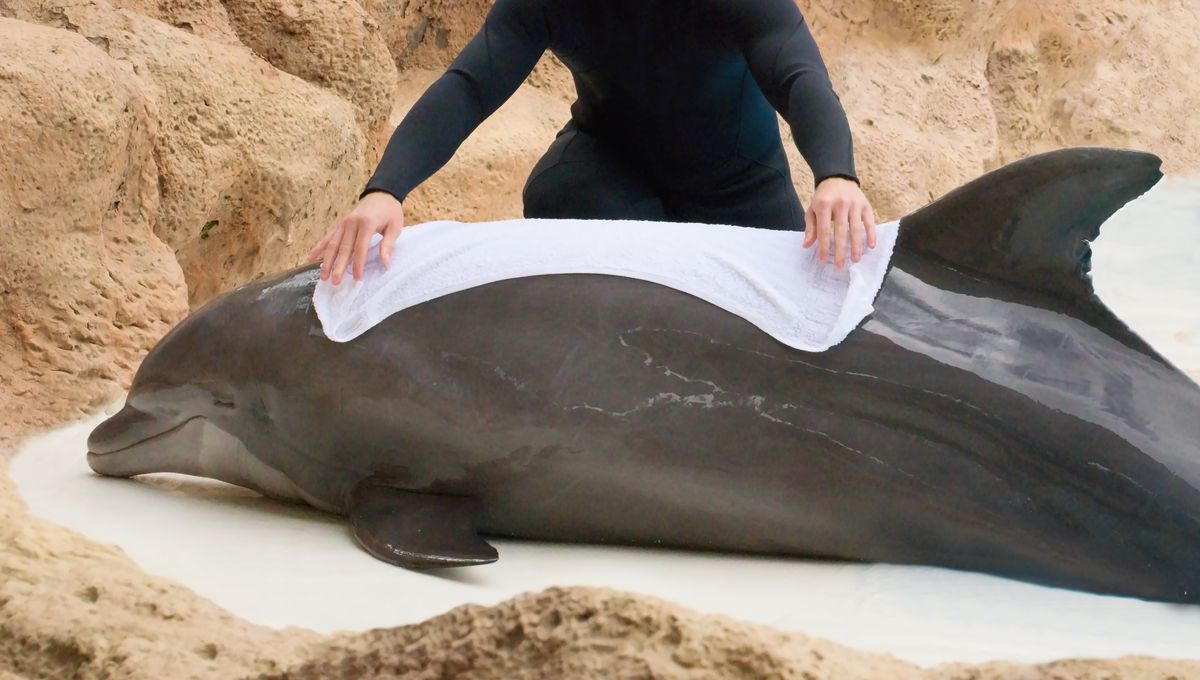
A romantic walk along the coast or an intense sandcastle-building contest might be how most people spend time near the waves. You might even be lucky enough to spot a dolphin from the water’s edge – but what should you do if you come across a stranded one? Advice from the Institute For Marine Mammal Studies suggests it might be the opposite of your first instinct.
What should you do?
The advice from all of the major authorities suggests calling a helpline in the case of finding a stranded dolphin, regardless of whether the animal is alive or dead. The numbers may vary depending on where you live and the species that you are likely to encounter. For those in the USA, the National Oceanic and Atmospheric Administration lists a map showing different organizations to ring based on your area, there is also an app available for Apple cellphones.
In the UK, the Cetacean Research and Rescue Unit (CRRU) recommends calling the nearest police station as they should know the number of the marine mammal rescue unit. It helps to estimate how long the animal is and look for any identifying marks or patterns that can help the rescue unit.
Most authorities recommend keeping dogs and other pets away from the animal and keeping other members of the public away to avoid further stress. They also recommend keeping a distance of around 45 meters (150 feet) away from the animal while you wait for help to arrive.
What not to do
If the animal is alive, the Institute For Marine Mammal Studies and CRRU both suggest not attempting to move the dolphin back into the water. However, they recommend keeping the dolphin wet with sea water if possible and being very careful not to get any water down the blowhole of the animal.
While it might seem unusual, returning an animal that is sick or injured to the water could be doing more harm than good. British Divers Marine Life Rescue suggest looking for signs of injury and even trying to count how many breaths per minute the animal is doing as this could help the rescuers to aid the animal when they arrive.
The advice also strongly recommends prioritizing your own safety and not attempting to handle the animal by the tail or fins. Even stranded dolphins are strong, powerful animals and could cause injury even when in distress.
The International Fund For Animal Welfare state that the coast around Cape Cod sees more whale and dolphin strandings than anywhere else on Earth. This is partially because of strong tidal change, though they stress that animals can strand for a myriad of different reasons.
Take home points
- Call for help
- Keep pets and people away from the animal
- Do not move the animal
- Keep the dolphin wet but do not pour water down the blowhole
- Keep yourself safe
Source Link: Why You Shouldn't Return Beached Dolphins To The Sea And What To Do If You Find One